
Get your hands on the new Windows Share feature and try out Click To Do enhancements with the KB5058499 update for Windows 11
Microsoft has released a preview version of the KB5058499 update for Windows 11, adding a host of new features to the operating system -- many of them, predictably, AI-oriented.
The biggest additions are updates to Click To Do, as well as the rollout of the new Windows Share feature. There is also “Cross device resume” to allow for seamless device migration when using OneDrive files, and much more.

OpenAI spends billions to buy Jony Ive's io as Sam Altman bets big on design-led future
OpenAI is officially buying Jony Ive’s hardware startup, io, for more than $6 billion. Yes, you read that right. The folks behind ChatGPT are now writing checks to bring legendary design talent and a brand-new product lab into their orbit.
Sam Altman and Jony Ive have apparently been quietly plotting this partnership for years, according to their announcement. What started as casual brainstorming and a bit of creative daydreaming apparently turned into “tangible designs” that both parties think could change the way we interact with computers.

New AI platform knows when you're lying, tired, or overwhelmed
Neurologyca has launched a new multi-modal AI platform called Kopernica that introduces emotional context to machine intelligence.
Described by the company as a “first-of-its-kind,” Kopernica uses real-time data from facial expressions, vocal tones, and behavioral signals to detect and interpret human emotions, cognitive states, and potential health risks, such as strokes. The platform is being positioned as a foundational layer for emotionally aware AI systems.
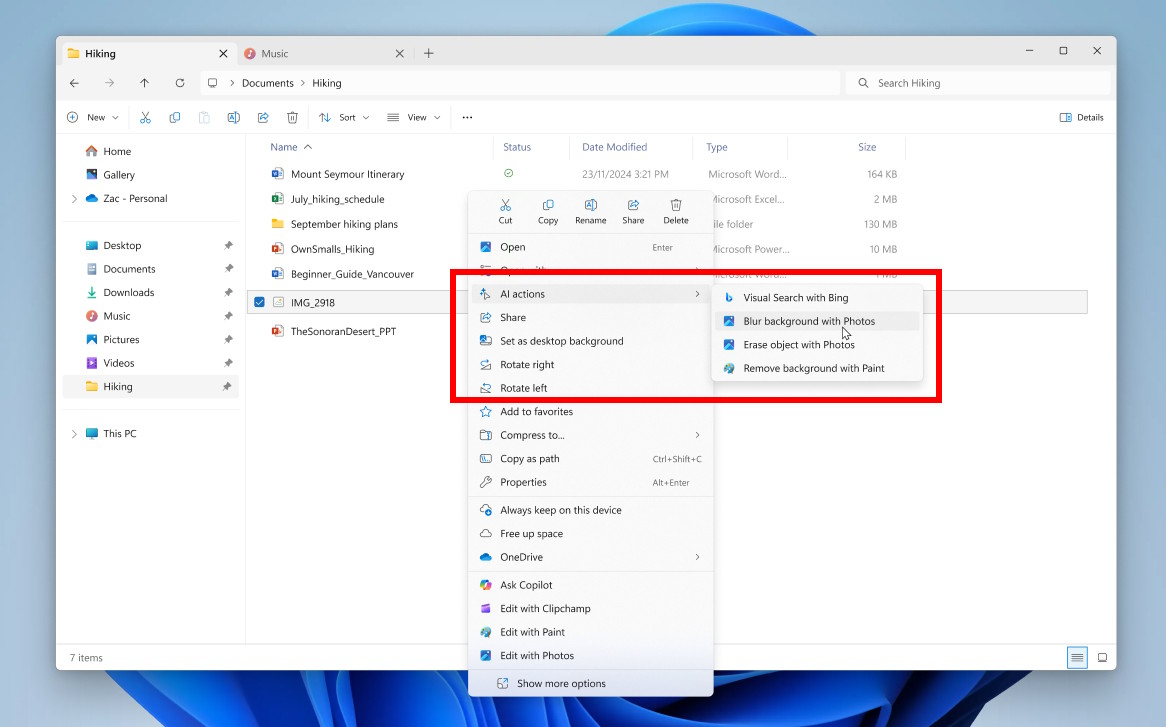
Microsoft adds new AI Actions entry to the Windows 11 context menu
Microsoft, Google, Apple, et al -- they are all at it. There is not a big-name tech firm in existence that is not deeply invested in artificial intelligence, and for end users this means having AI tools dangled in front of them at any given opportunity.
Windows 11 has already seen more than its fair share of AI, and this is not something that shows any signs of changing.

YouTube is turning to AI to hit you with ads at the most annoying times
Unless you can count yourself among those who have a premium subscription, using YouTube means having to endure ads. This is annoying, but it could be getting a whole lot worse.
And things are getting worse because of artificial intelligence. Google has announced Peak Points, a Gemini ai-powered feature that gives advertisers way to hit you with ads when you are most engaged with a video.

Microsoft continues to foist Copilot on Windows 11 users by adding it to the context menu
Loved, loathed, feared, viewed with suspicion -- all valid reactions to the existence of Microsoft's Copilot. The AI-powered assistant has proved hard to avoid thanks to the company's crazed promotion of its latest baby, and now things are being ratcheted up a notch.
Microsoft latest attempt to get people to use the Copilot app is to add a new shortcut to the context menu. Right click on a file in Windows 11 and you'll be presented with an Ask Copilot link so you can subject your documents to artificial intelligence.
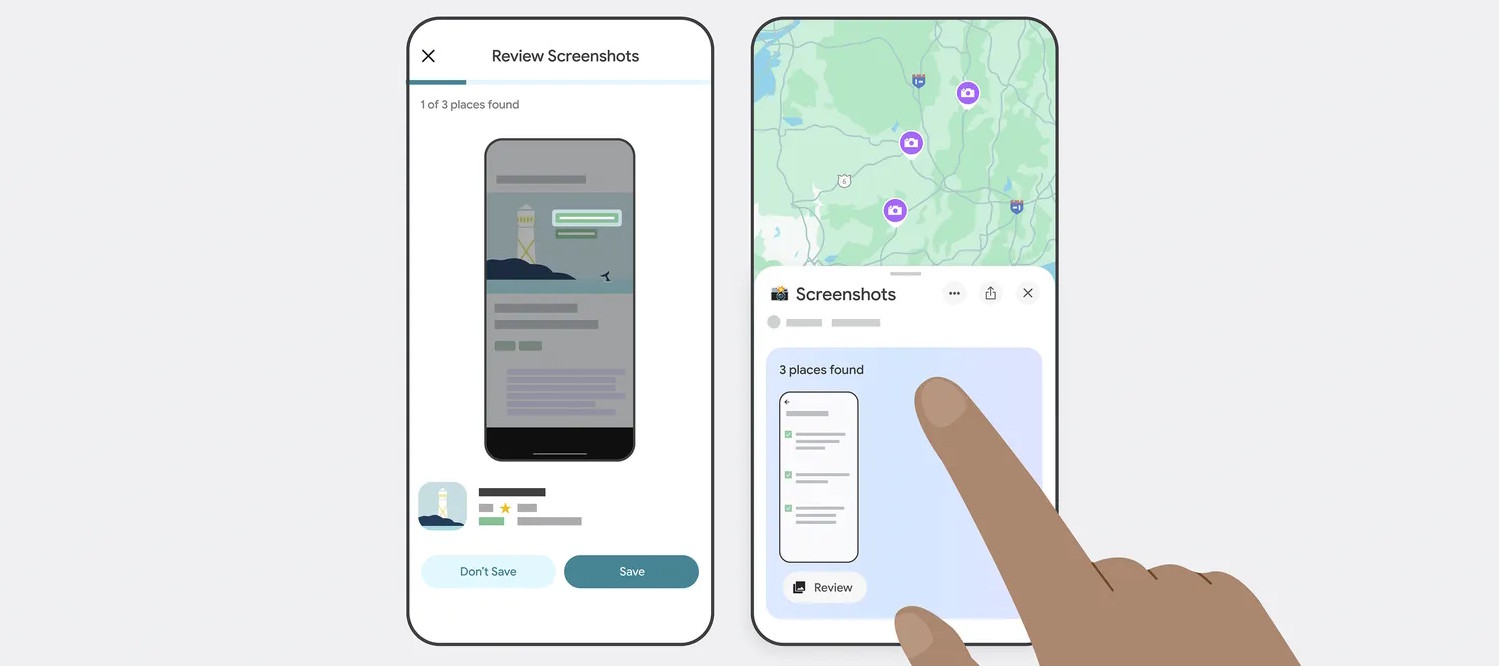
Google Maps can now use your screenshots to help you plan trips thanks to Gemini AI
Screenshotting stuff can seem like a great way to remember something for later, but captures soon get lost and forgotten. Google is looking to change this by bringing new Gemini-powered features to Google Maps.
The company thinks that it can help you to make sense of the “travel blogs, news articles or social media posts” you’ve screengrabbed while researching a trip. Turning to AI to make sense of a heap of images is Google’s solution. Here’s how it can help you.
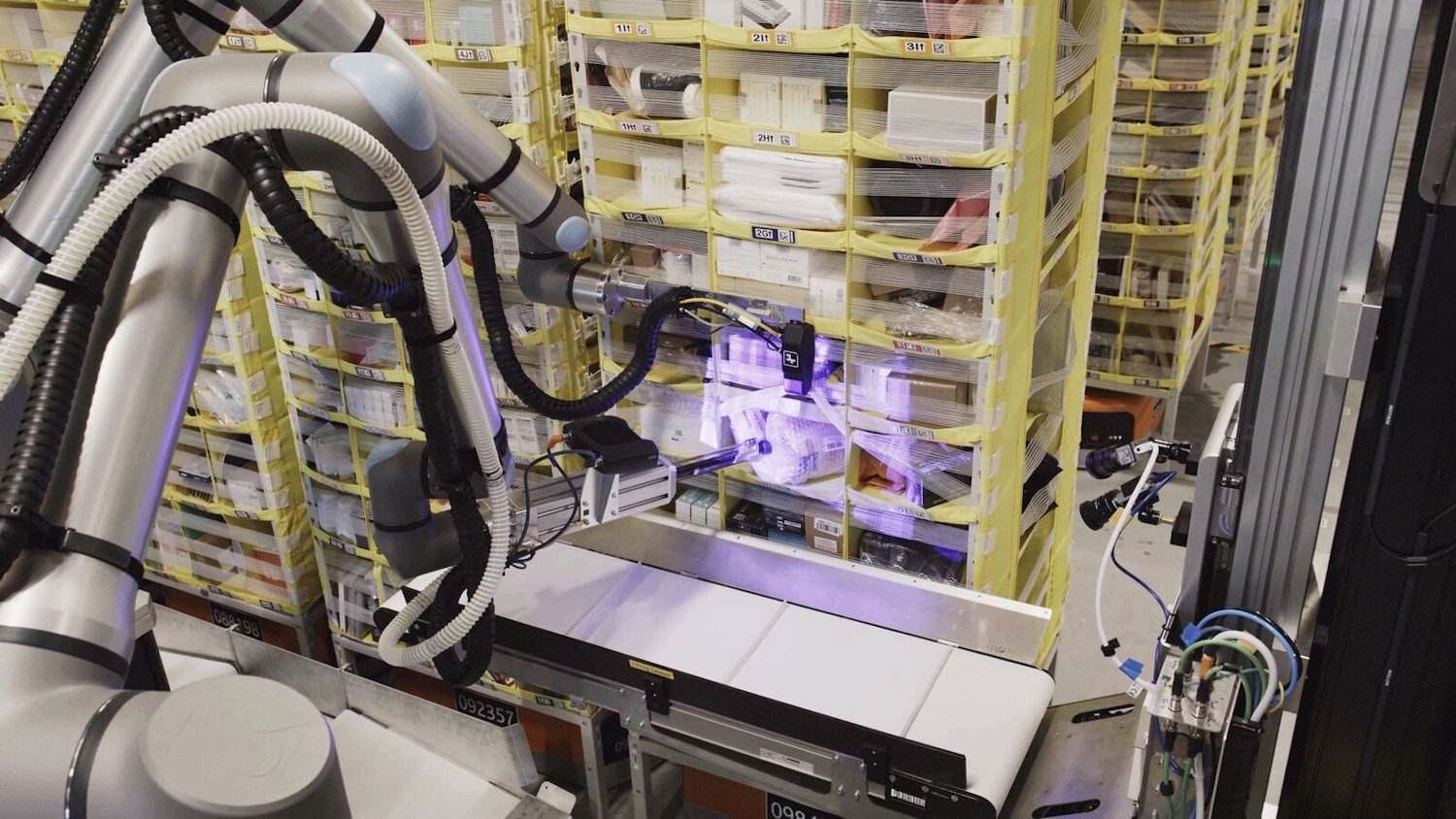
Amazon unveils Vulcan, a package sorting, AI-powered robot with a sense of touch
The meeting of artificial intelligence and robotics almost unavoidably conjures up images akin to the Terminator -- but with Vulcan, Amazon has something different in mind.
Moving away from the traditional “numb and dumb” robot, Vulcan is described as a “fundamental leap forward in robotics”. Designed for used in its fulfillment centers, this is Amazon’s first robot with a sense of touch.
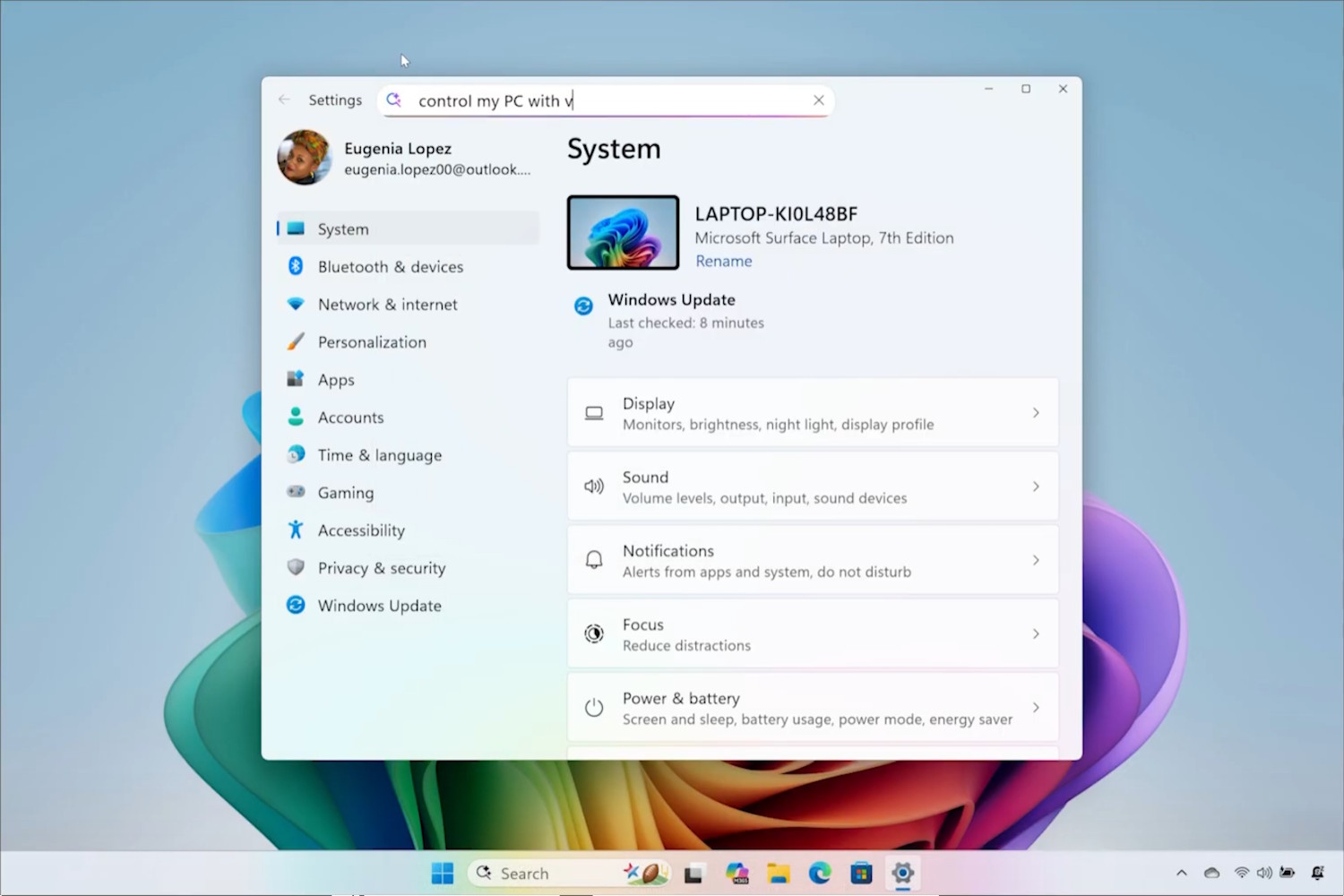
Microsoft now has AI agents that can change Windows 11 settings -- should we be delighted or terrified?
Artificial intelligence is now all but unavoidable, and Microsoft is taking every opportunity to crowbar more AI features into Windows 11. Copilot+ PCs are a big part of the company’s AI vision and now powerful new AI agents have been unveiled.
Described as being part of a “new generation of Windows experiences”, Microsoft has revealed new agents that use on-device AI to interpret natural language input to help a user find and change system settings. What could possibly go wrong?

Microsoft is updating the Copilot app with an introductory tutorial for newbies
Powerful new tools are only useful if people know what they can do and how to get them to do those things. For what feels like an eternity, Microsoft has been pushing Copilot as the greatest addition to Windows since... well, since Cortana it probably thinks.
For tech heads who have kept up with the latest news and developments, it’s easy to know what Copilot is, what it is about, and what it can do. But Microsoft realizes that not every Windows user is a tech head and is adding a guided tour to the app.

Microsoft has finally realized that not everyone cares about Copilot
Despite making claims to the contrary, Microsoft is not really thought of as being a company that takes much notice of user opinion. All too often it seems that incredibly unpopular options, features and changes are introduced with little regard for what users actually want.
But, to buck the trend, Microsoft has apparently been listening to feedback from people who are unhappy about the encroachment of Copilot into... well, pretty much everything, really. The decision to include a physical Copilot key on keyboards has been one such unpopular move, and the reaction from Windows 11 users has forced Microsoft’s hand.

What is an AI agent and why should you build one?
AI agents are having a moment. From automating customer service to optimizing supply chains, AI agents are constantly promising to transform how organizations operate -- faster, smarter and more efficiently. In fact, recent research from Salesforce shows that 93 percent of IT leaders plan to implement AI agents in the next two years. But what exactly is an AI agent?
An AI agent is a software system that can autonomously perform tasks like answering customer inquiries and translating documents in multiple languages, improving overall efficiency and customer experience. Unlike traditional automation tools that follow static rules, AI agents continuously learn from data and adapt to changing conditions to make decisions on their own, in real time. That’s what makes AI agents powerful and risky.
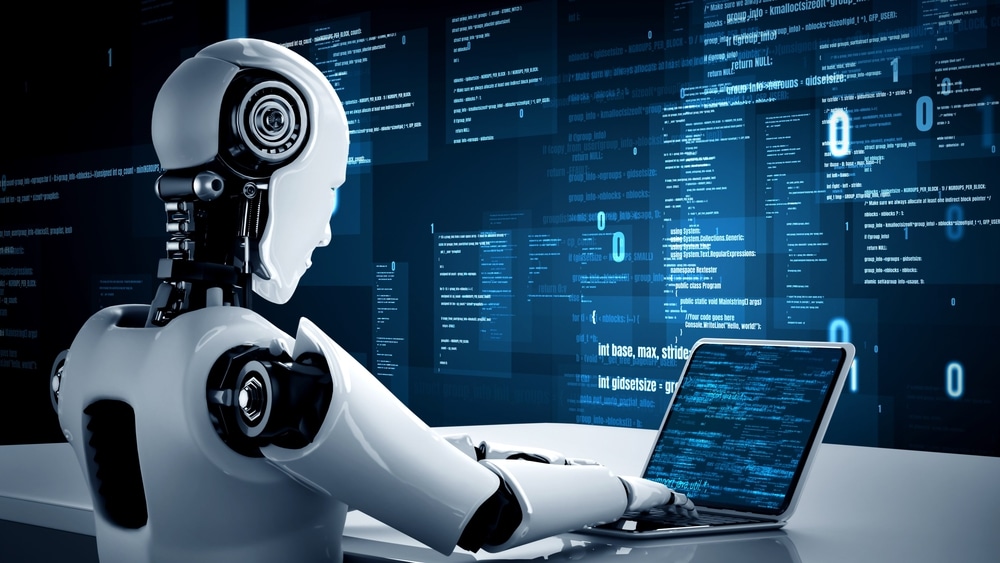
What does the future of AI-powered software development look like -- and how secure is it?
AI and machine learning tools have had an important role in software development for many years, helping to drive efficiency and automation. The new generation of AI tools has the potential to supercharge this transformation, bringing even greater improvements to efficiency, cost-effectiveness, and innovation cycles.
However, these tools also come with new risks, including security vulnerabilities, governance challenges, and regulatory uncertainty. As with any new technological approach, organizations bringing new AI tools and specifically AI-generated code into their development lifecycles must balance benefits with the potential risks.

Four common AI pitfalls -- and how to avoid them
Artificial intelligence (AI) is transitioning from an emerging technology to a business mainstay. While many businesses are already reaping the benefits of strategic AI implementation, others are adopting AI solutions without first considering how to integrate the tools strategically. While some AI tools offer tangible gains in automation and efficiency, others overpromise and underdeliver, leading to costly investments with little return.
Distinguishing marketing buzz from real-world impact is critical for businesses looking to make AI a true driver of operational success. Despite AI’s potential, many businesses fall into common pitfalls that prevent them from realizing the full value of innovative technology. From unclear objectives to poor integration and security risks, these challenges can turn AI from a competitive advantage into an expensive mistake.
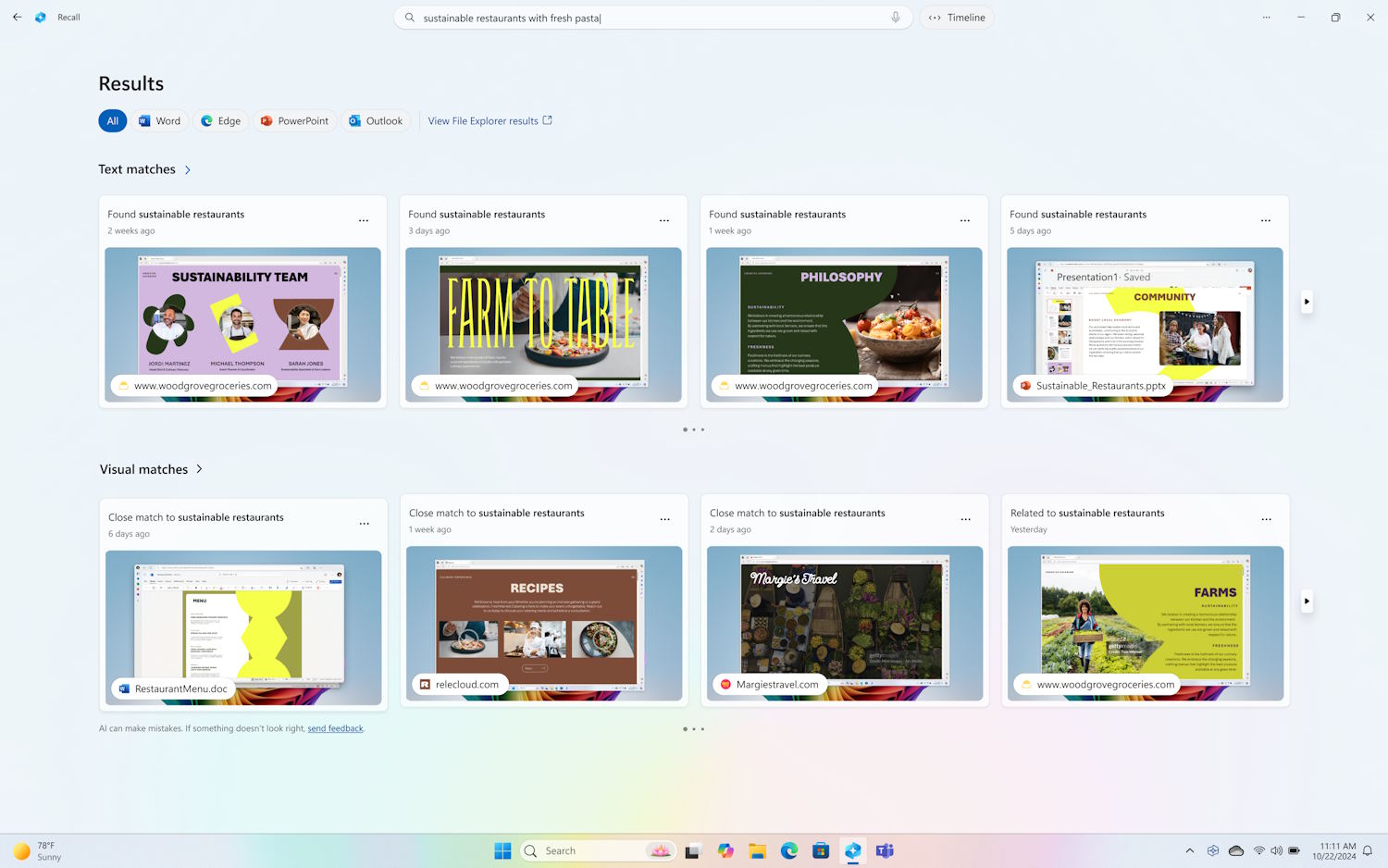
Microsoft thinks its controversial Recall feature is ready for some Windows 11 users to try out... install it if you dare
When Microsoft first added the AI-powered Recall feature to Windows 11, it could hardly have been expecting the backlash that came from users. Concerns about privacy and security forced the company to delay the rollout of the activity and screen monitoring snapshot tool.
Now Microsoft thinks it has made the improvements required to calm the concerns of those who spoke out very loudly against the tool. A new preview version of Recall is making its way to some users right now.
